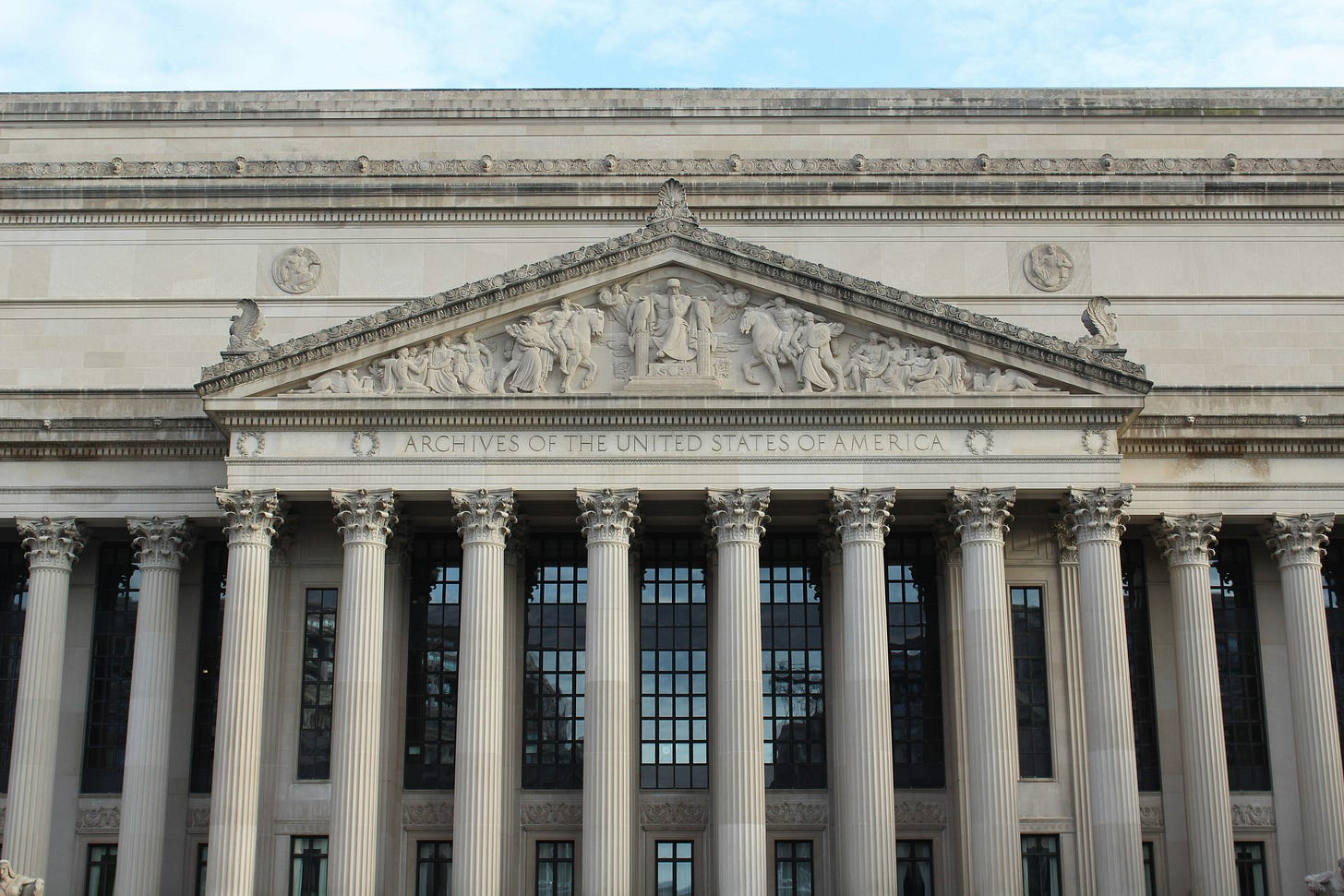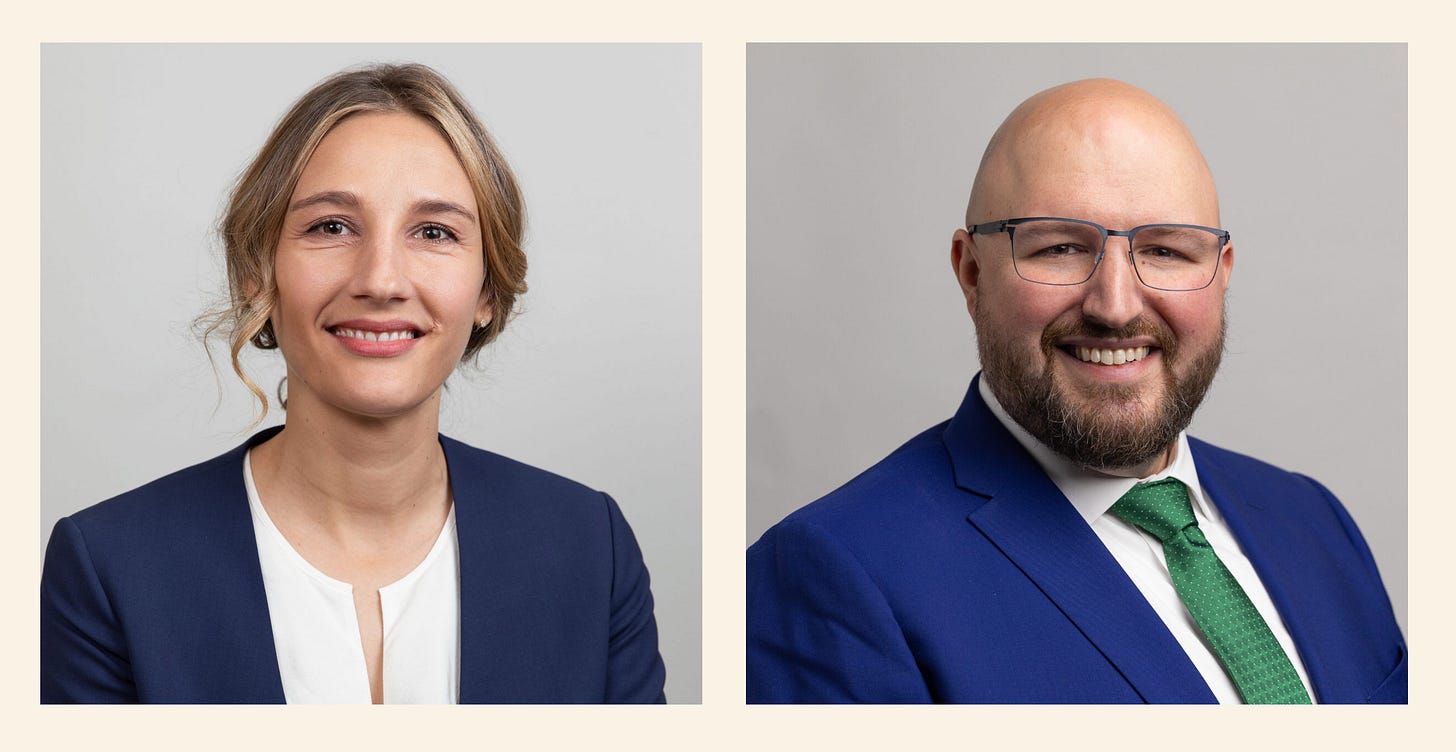America Honors Ideas, Not Ideologues
We can’t afford to be the sort of place that immortalizes kings.
By Anya Bidwell and Patrick Jaicomo
Before dawn on October 18, 2017, the FBI dispatched a team of six SWAT agents to arrest a dangerous gang member outside of Atlanta, GA. They used a battering ram to knock down the front door and threw flash-bang grenades. Inside, the occupants hid in closets and under their bed covers. Police stormed the house and put a male suspect in handcuffs. The only problem was, it was the wrong house.
The FBI quickly learned that the person they cuffed wasn’t their gang member at all, but an innocent man named Toi Cliatt. He was there with his girlfriend Trina Martin, and her son Gabe. Within five minutes, the agents let Cliatt go, and the lead officer in charge of the botched raid handed the terrified family his business card before leaving. They ultimately found the right house and arrested the suspected gang member.
We know all this because these people were our clients. Last term, we argued Martin v. United States in the US Supreme Court, a case that sought to make right the grave wrongs done to this innocent family. Ordinarily, it’s extremely difficult to sue federal agents for mistreating citizens, no matter how outrageous the offense. You might think that having your house mistakenly stormed by a heavily armed SWAT team puts you on the glide-path to an apology and a financial settlement from the government for the damage done; you would be wrong.
After initially being dismissed by several lower courts, our case eventually made its way to the US Supreme Court. This in and of itself counts as a victory, since the vast majority of cases like these are thrown out. As we argued before the nine Justices: The Federal Tort Claims Act (FTCA), which Congress passed in 1946, allows private individuals to sue the federal government for torts—or civil wrongs—committed against them. While there are already broad exceptions for the government to have these cases dismissed in its favor, the lower court overreached by creating a brand new one.
In June, the Court decided in our clients’ favor, ordering the lower court to reconsider its decision immunizing the FBI from liability for the raid on Martin’s home. It wasn’t a sweeping victory, but it was a meaningful one. It can’t undo the family’s trauma from this whole experience, which cost Martin and Cliatt their jobs and led Gabe to feel that he “didn’t really have a childhood.” But the outcome at least demonstrated the ongoing viability of the American court system as a principled arbiter of blind justice.
Which is why it’s so alarming to us today to see parts of our justice system being attacked and undermined by the very leaders tasked with upholding it.
As we reflected on our court victory, we thought back to the day before the argument, when the two of us went to the National Archives to seek inspiration from America’s founding documents: the Declaration of Independence, Constitution, and Bill of Rights. No more than fading ink on old parchment, the papers are housed in an ornate rotunda where they lie in oxygen-free cases behind thick glass. In the reverent hall, we quietly rehearsed our opening statement beneath a life-sized mural of the Founding Fathers. It felt like exactly the kind of place where we should be just before arguing in front of the nation’s highest court, and we left the building genuinely awestruck at the gravity of the place.
“That’s what it’s all about,” one of us said. He was born in America, from Indiana.
“Reminds me of my childhood trip to the Lenin mausoleum,” another responded. She was born in the Soviet Union, a place where the neutral structures of justice were not allowed to take root until 1991, with the fall of the empire; and a place where those systems still today are struggling to be born under the foot of an autocratic regime.
As we discussed the similarity of our two experiences, we realized the comparison underlined a remarkable difference between the two systems of government—one democratic and free, the other autocratic and authoritarian.
While the Soviet government honored a man and placed him in an oxygen-free case for tribute, the American government honored documents. More specifically, it honored the ideas expressed in those documents: life, liberty, and property. The ideals professed in those documents were advanced in the real world by men who believed in them sincerely enough to take up arms. But these were also men who understood that the texts on which the new nation was founded would far outlive themselves, and who balked at the kind of deification we see across anti-democratic societies throughout history.
Inside the Archives, portions of the Constitution are still bold and easy to read, but the words on the Declaration are fading. As we walked down the sidewalk to the Court, we wondered aloud how long the documents would still be legible. It struck us that they could not last forever. After the words fade away, so too will the parchment. It’s inevitable.
But the principles they embody must live on. Long after both Lenin and the Declaration are dust, the eternal ideas of freedom and individualism must remain. These ideas make America the land of the free and the home of the brave. They make Americans American, no matter whether born in Indiana or the Soviet Union. These ideas are our compass. If they endure, we will always be able to find our way back home.
But today they are under threat. It used to be taken for granted among lawyers like us and the public at large that, in America at least, certain things were sacrosanct: the independence of the courts, the supremacy of the rule of law, and the inviolable principle that nobody—regardless of wealth, power, or office—lies outside the reach of justice. Today all of those are being tested to the breaking point, and it remains to be seen whether they can withstand the strain. Our system of justice is only as good as the people who are willing to stand up for it, and today too few seem to stand ready to take up that mantle.
If a president is able to attack and undermine any court that attempts to check his power; if judges are too afraid to discharge their duties because of threats and intimidation; if those tasked with upholding the law cannot do so without fear of political retribution; then we find ourselves in a diminished country, where liberty is no longer guaranteed; a country where the founding documents live on as papers in an awe-inspiring room, but no longer the guiding texts the Founders intended them to be.
The only reason our clients were able to find some measure of justice was because, for 249 years, America has developed—in fits and starts—toward being a rule of law society. It’s a nation of laws, not men, where an innocent, terrified family can still plead its case—and be heard—before the nation’s highest court. If our system goes the way of other authoritarian countries, all Americans will lose access to the promise of blind justice that the Founders first put forth. We will all be worse off for it.
Walking to the Supreme Court for our argument, we saw a crowd gathering at the courthouse steps. Americans patiently stood in line to hear us argue to the Justices why the government must be accountable for the mistakes of its agents. We won, and so did America. But as we celebrate this victory, we are still thinking about that morning in the National Archives. How different our lives would have been, if it were a person, and not paper, behind that thick glass. And how different will our nation’s future be if we choose a different course for ourselves.
Bidwell and Jaicomo are senior attorneys with the Institute for Justice. They run IJ’s Project on Immunity and Accountability.





Hold the line! We are up against the wall. Please work to limit the ability of this administration to limit peaceful protests and sharing of anti-administration opinions. It is frightening to say the least to read the Sept. 25, 2025 Memorandum below!!
On September 25, 2025, the President released National Security Presidential Memorandum-7 (NSPM-7), titled “Countering Domestic Terrorism and Organized Political Violence.”
NSPM-7 contains broad and vague language that could allow government agencies to monitor or penalize individuals and groups based on their beliefs rather than their actions.
Terms like “anti-American,” “anti-capitalist,” and “anti-Christian” are so loosely defined that peaceful advocacy organizations, religious communities, or critics of government policy could be subject to investigation—even if they have no connection to violence of any kind.
Nice story. A bright point of light. The symbology of realizing that the sun shines behind the clouds is a bit cliche, but this story is a reminder that sometimes the sky clears, even if momentarily.
Thanks.